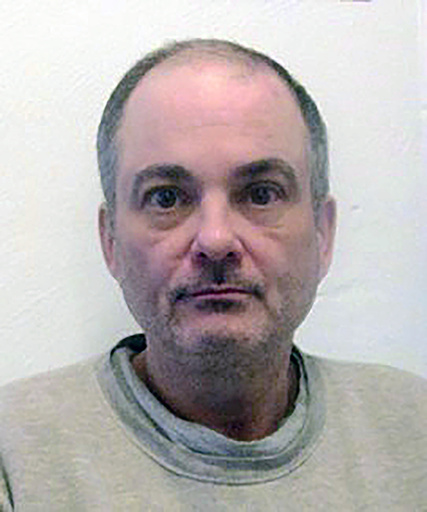OKLAHOMA CITY — On Wednesday, an Oklahoma board declined to recommend clemency for Wendell Grissom, a man on death row for the fatal shooting of a woman during a home invasion in 2005. This decision sets the stage for Grissom to become the first individual executed in the state this year. The Pardon and Parole Board voted 4-1 against clemency, with Grissom, aged 57, opting not to address the board through a video link from the State Penitentiary in McAlester. His execution by lethal injection is scheduled for March 20.
Grissom, along with an accomplice, Jessie Floyd Johns, was found guilty of the murder of Amber Matthews, 23, and the injury of her friend, Dreu Kopf, at Kopf’s residence in Blaine County. While Johns received a life sentence without the possibility of parole, Grissom’s attorneys, Kristi Christopher and Thomas Hird, acknowledged his guilt but emphasized that Grissom suffers from brain damage — a fact they argue was never brought to the attention of the jury. They stated he has continually accepted accountability for Matthews’ death and has shown remorse, even issuing an apology to the victim’s family during his initial police interview.
“He cannot change the past, but he feels deep shame and remorse,” Christopher expressed in her plea to the board. The defense team also mentioned that several jurors, including the jury foreman, revealed they might not have voted for the death penalty if they had known about Grissom’s brain impairment.
However, the prosecution dismissed these claims, asserting that Grissom and Johns deliberately planned the crime, armed with firearms and ammunition, and took precautionary measures to ensure there were no men at the home before Grissom opened fire. Assistant Attorney General Jennifer Crabb emphasized the intentional and premeditated nature of their actions.
Attorney General Gentner Drummond described Matthews’ murder as an archetype for a death penalty case, stating, “The heinous acts committed by Grissom, involving random and brutal violence against innocent individuals within their own homes, are precisely the scenarios that disturb the peace of mind of our community.”
The board also listened to heartfelt testimony from Kopf, who described the lasting psychological and physical trauma resulting from the attack. She shared her ongoing fear, stating that even small things like a doorbell ringing or an unfamiliar face in her neighborhood would trigger her anxiety. “I lived in a heightened state of fear at all times,” she tearfully recalled.
Without a clemency endorsement from the board, Governor Kevin Stitt is unable to commute Grissom’s death sentence. In his six years in office, Stitt has only granted clemency once, to inmate Julius Jones in 2021, shortly before Jones was set to be executed. He has rejected clemency recommendations from the board in four other instances, underscoring the high bar for such decisions.



